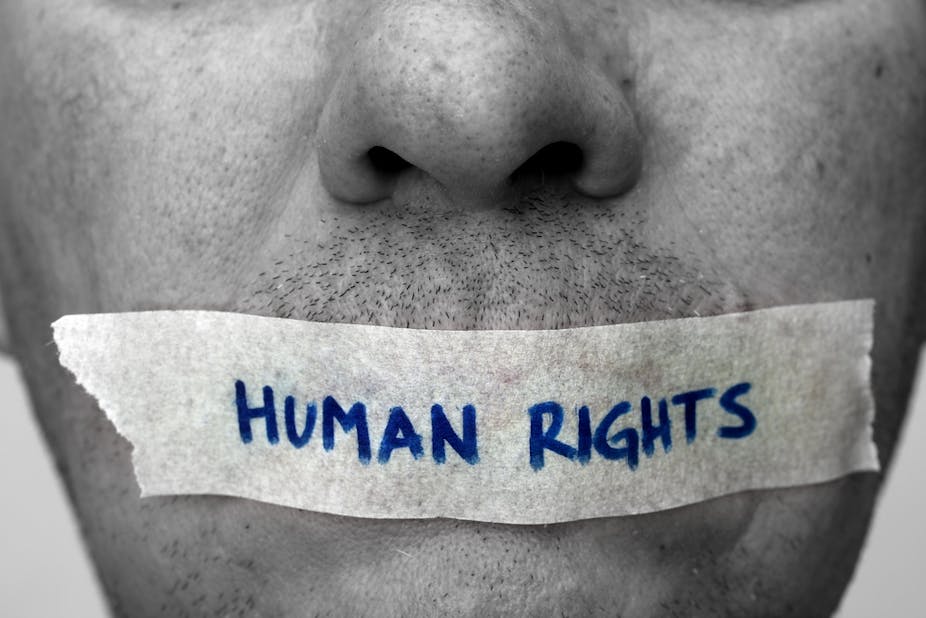When considering the future of human rights and whether they will be viewed as more, or less important in the years to come, many potential challenges come to mind: climate change, nationalism, inequality, growing authoritarianism. Ultimately, many of these different threats are linked to one another in complex ways – for example, inequality has fomented nationalism, and climate change can increase inequality. But they also depend on the answer to a deeper question: “How important are the human rights of others to us generally?”
For the thing most likely to stall human rights progress is people around the world simply not considering them to be as important as their advocates would have us believe. When it comes to a trade off between human rights and other things people hold dear – their material well-being, their security, their children’s opportunities and accomplishments – there are plenty of examples to suggest that people are reluctant to make sacrifices to realise other people’s rights.
Let’s take three obvious examples. First, inequality. Even in the most rights-observing societies, there is often reluctance among key sectors of the population to redistribute income through higher rates of taxation. For many poorer people, nothing would make more of a difference than reliable access to high-quality education and healthcare. But in the US and UK, public funding for both is constantly being squeezed. We know that reliance solely on private sector solutions creates significant inequality, but too many people simply aren’t willing to pay more to give everyone the highest possible standard of medical treatment and schooling.
Or take the treatment of refugees. As many scholars have recognised, we are never so alone and never more in need of our human rights than when we do not have the protection of a national government. When we are refugees, all we have is our “humanity”.
But far from this triggering deep concern among affluent populations, instead it seems to have fuelled a kind of moral panic about immigration in Europe and has led to the rise of right-wing politicians. The courageous decision by German chancellor Angela Merkel to open up German borders to a million refugees from Syria has weakened her politically, and allowed into German politics far-right parties and movements. When we add Islam into the mix, regardless of the importance of the right to one’s religious beliefs, things get even less rights-friendly.

Finally, torture. Nothing would seem to be more of a poster child for a commitment to human rights than the claim that no one should be tortured. Yet, when we look at opinion surveys of attitudes to torture, we discover widespread support for torture designed to tackle national security threats. We can also see this punitive logic in death penalty cases in many places, where the only reason to resist the death penalty that gets any traction is the fear of executing an innocent person, rather than the fundamental human right to life.
In fact, we can see such attitudes repeated across a whole range of civil liberty issues from freedom of information to freedom of the press, from freedom of speech to freedom from surveillance. When faced with significant threats, people will actually sacrifice a good deal of liberty – the liberty of others but eventually their own, too – to keep what they have safe from harm.
‘Our jobs, our land’
I’ve always been struck by the lack of attention given to Article 29 of the Universal Declaration. It talks of our duties to the community, not our rights. Its second paragraph states:
In the exercise of his rights and freedoms, everyone shall be subject only to such limitations as are determined by law solely for the purpose of securing due recognition and respect for the rights and freedoms of others and of meeting the just requirements of morality, public order and the general welfare in a democratic society.
Authoritarian states can easily use this article to suppress rights in the name of public morality or to crush dissent and remove (or embed) property rights. But this is not how democratic states are supposed to act. Democratic states must, however, meet the demands of some coalition of their citizens. If they lose enough support among key groups within their citizenry, then the government will lose power or the democratic state itself might come under threat of being toppled.
Many Western countries have long overlooked Article 29 because, for the most part, wealthy democracies have been in the ascendant since 1948. But now they’re under pressure, and the basic social contract – the deal that these democracies strike with their citizens – is suddenly in question. New threats, such as inequality, climate change, and the replacement of manual work by AI and machines, mean those who fear that the old social contract is no longer in their interests are making their voices heard. They say, “these are our jobs”, “this is our land”, “our community has certain shared values”, and “people like us are the only real citizens”. These sentiments, echoing around the presidency of Donald Trump or during Brexit, are in direct opposition to human rights.
States don’t much like rights – they’re an annoyance or an embarrassment. The survival, and flourishing, of human rights requires people, the citizenry, the populace, to say that these rights are important and to demand that their governments observe them. And by that same logic, the people can sink them, too. In the end it is us, we – however we define that problematic term – who will make the difference between the failure or success of human rights, whatever the external and internal threats we face.

